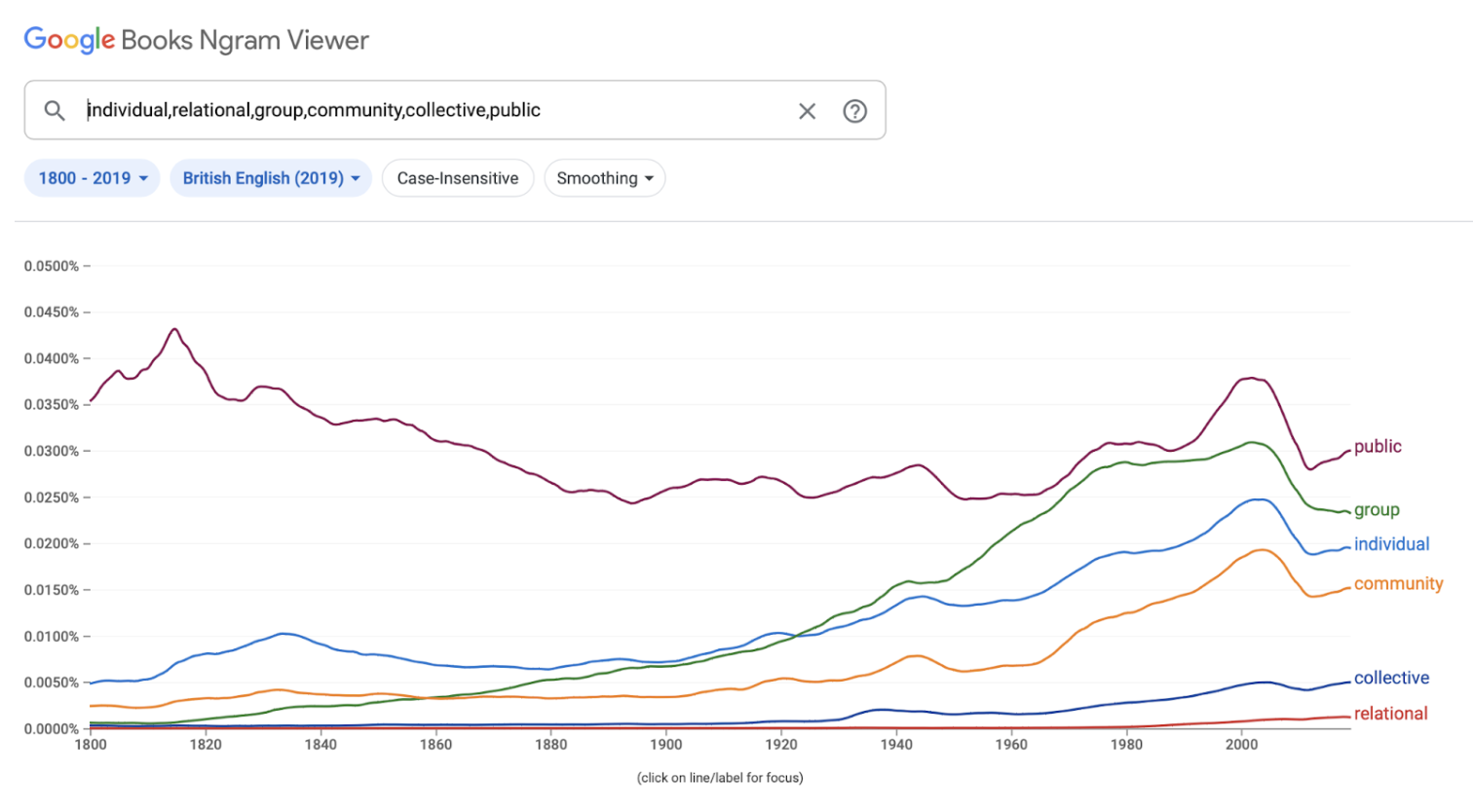As it turned out, most weeks in August I’ve was spending my Friday afternoons pitching a tent in different campsites or fields for summer holiday travels, and that rather wiped out time for weeknote reflections. So, with the tent now stowed in the garage until next year (or perhaps, one last outing if we get a warm October half-term), I’m looking back over August for a month-note of project updates.
Narratives research
We completed recruitment of a researcher in response to our call on mapping out how far existing media stories about data issues adopt a collective or individual lens. We’re delighted to be working with Libby Young on this research. Libby is currently working on a PhD at the University of Sydney on the power of personal data, and has already been digging into a range of narratives around data, from discussions of the A-Level Exam Results algorithm, through to stories about housing discrimination in the US, and exploration of how countries harnessed collective intelligence (and pooled data) to fight COVID.
Libby has also been challenging us to think about the specific terminology around collective data governance, using Google NGrams to hold up a mirror to the use of different kinds of terminology that captures concepts beyond the individual, as in the chart below.

We’ve got the first project milestone on the narrative research coming up mid-September, so I’m looking forward to sharing a bit more of what we’re learning then.
Sector scoping
Working out how to use our focal sectors to guide our work is an ongoing process. For the time being I’ve paused attempts to create full documents describing each sector, and instead I’m just collecting evidence and resources in internal messy Zotero folders and slide decks, with the goal of working out the public presentation of these when they are needed.
However, to guide Libby’s research and selection of stories, we did need to come up with some boundaries and areas of focus in each sector, so I’ve developed the draft ‘scope statements’ below for each sector:
- Debt, Finance and Gambling - Our focus in this sector is on consumer debt in the United Kingdom. We look at this particularly in the context of the cost of living crisis created by high inflation, low wage growth, and rising energy costs. Consumer debt takes many forms, including mortgages, student loans, car loans, payment arrears, credit card debt and buy-now-pay-later services. We also pay particular attention to gambling debt which affects more than 3 millions people in the UK.
- Housing - Our focus in this sector is on housing as a universal need, provided through both public and private sectors. We pay particular attention to the rental market and issues of tenant profiling, landlord accountability and the intersection of housing and the legal system. We also pay particular attention to the role of data in relation to planning, and the distribution of costs and benefits of development between public and private actors, as well as the role of data in supporting decarbonisation of housing stock.
- Education - Our focus in this sector is on widespread experiences of the education system as a public service. This leads to a strong focus on primary and secondary education through formal schooling, although we also pay some attention to growing practices of independent and online learning, and the lifelong tracking of learners through from early childhood to tertiary education and beyond.
We’re also looking at how to include justice as an additional sector, in part because of the relevance of this to some of the measures in the Data Protection and Digital Information Bill, and in part because we’ve had the opportunity to do some more direct work around justice data dialogues.
Justice Data Matters
As a new project, just kicking off, we’re going to be carrying out a rapid evaluation/reflections piece of work looking at the Legal Education Foundations’s Justice Data Matters project. This combined a representative poll, with two online deliberative workshops, to look at public attitudes towards use of court data.
I’m just setting up interviews with key stakeholders over September - but if you happened to follow the project, its results, or have any interest in talking about your experiences of it, do drop me a line.
Case study database
We’re getting closer to having a first public version of our case database. Just some finishing touches to put to layouts and a final edit of the first cases. I’m quickly building up a long-list of examples of public dialogues and participatory activities around data governance, and realising I need to either streamline the process of turning these into documented cases, or to start being more selective about the cases I cover.
Data protection and digital information bill
A good chunk of August was also taken up looking at the Data Protection and Digital Information Bill. I took a deep dive into how the bill might impact on Data Protection Impact Assessments (DPIAs) which are set to more-or-less disappear, just as they are starting to get used to enable broader participation in data governance (see this twitter thread for more).
I’ve also been looking into a couple of the specific legitimate interests for data processing that would be introduced by Schedule 1 of the draft Bill, permitting data sharing for safeguarding and democratic engagement.
More practically, the stakeholder mapping work that Gavin Freeguard and Renata Sampson have been helping us with triggered me into working up a first draft of a CRM system for Connected by Data.
Theory of Change and Metrics
As Jeni has written, we managed to finalise the first version of our Theory of Change, and I’ve been doing some work to develop meaningful metrics we can capture to track our progress against it. More on that soon.
